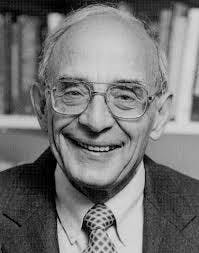Chris Argyris passed away last month, at the age of 90.
This Harvard Business School professor earned 14 honorary doctorates, produced 30 books, and published over 150 articles. Anyone in the field of Human Resources should know of this man’s contributions to the field of understanding, as the frame a foundation for improving human performance.
Think about this: We make decisions every day. We go through a process to do so.
Argyris defined this process as the “ladder of inference.” He pointed out that we often skip steps in the thinking process, for example starting with assumptions rather than real data. Starting with assumptions, not only eliminates gathering facts, but also looking at the context surrounding the facts, and then interpreting the facts within the context.
Defining a process of detecting and correcting error
Starting with assumptions is a natural tendency today as we remain so busy that we are propelled to immediate action. Argyris’ ladder of inference provides a step by step process, along with good questions to ask yourself, so that you walk through the decision-making process with the best possible outcome.
Think also about this: According to Argyris, organizational learning is a process of detecting and correcting error.
In a basic form, an error happens, a correction is made and life goes on. Will the error happen again? If you don’t question why they error happened in the first place and correct the root cause, it may. In some industries, repeated errors can be catastrophic.
A new way of looking at problems
Argyris coined the term “double loop learning” to describe not just correcting the error, but looking beyond to determine why the error occurred in the first place. His example is quite descriptive. Questioning the “why” takes the decision-maker beyond the obvious, and forces questions that may shake the bedrock of assumptions.
If you are interested in learning more about human performance and decision-making, read his book Overcoming Organizational Defenses. You will probably think, “yep, that sounds familiar” throughout the book, and may come up with a whole new way of looking at problems.
He left a great legacy in a quiet way, helping us find the right questions to ask to get to the real problem.
This originally appeared on the ….@ the intersection of learning & performance blog.
